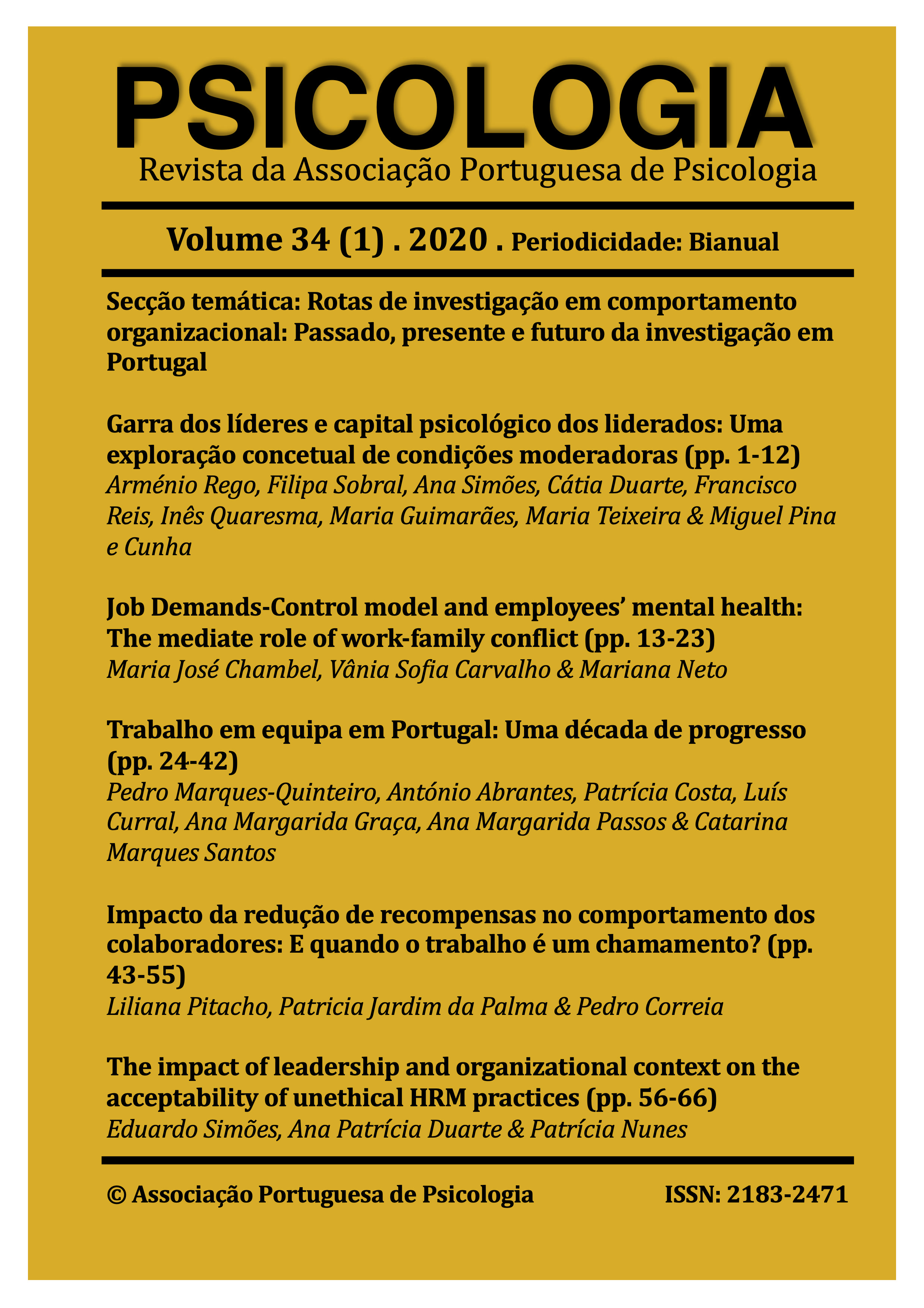Teamwork in Portugal: A decade of progress:
DOI:
https://doi.org/10.17575/psicologia.v34i1.1468Keywords:
team work; team leadership; team processes; emergent states.Abstract
In the last decade in Portugal, we have witnessed the explosion of the number of studies about the antecedents of the effectiveness of work teams in complex and extreme work environments. Research has focused on behavioral (e.g. coordination, leadership), cognitive (e.g. shared mental models, transactive memory systems) and affective (e.g. team work engagement) factors that help us explaining why some teams perform better, are more satisfied with their work, and believe that they are more viable (even the ones that work in adverse conditions). Throughout this article, we review team studies conducted in Portugal over the last ten years, we establish bridges with other international contributions, and present suggestions for the future of teamwork research in the next decade.


